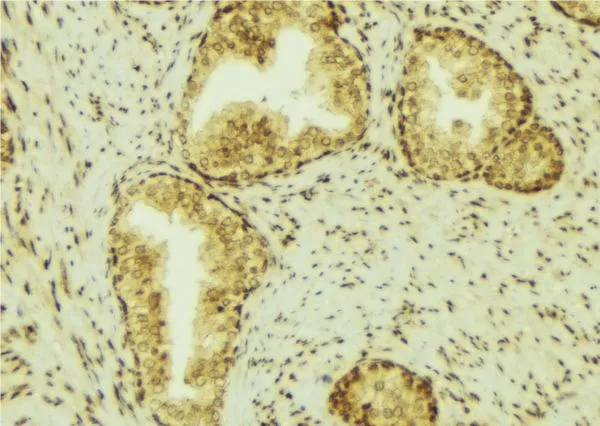
IHC-P analysis of mouse colon tissue using GTX01078 LCN2 antibody. Antigen retrieval : Heat mediated antigen retrieval step in citrate buffer was performed Dilution : 1:100
Lipocalin-2 antibody
GTX01078
ApplicationsWestern Blot, ImmunoHistoChemistry, ImmunoHistoChemistry Paraffin
Product group Antibodies
ReactivityHuman, Mouse
TargetLCN2
Overview
- SupplierGeneTex
- Product NameLipocalin-2 antibody
- Delivery Days Customer9
- Application Supplier NoteWB: 1:500-1:2000. IHC-P: 1:50-1:200. *Optimal dilutions/concentrations should be determined by the researcher.Not tested in other applications.
- ApplicationsWestern Blot, ImmunoHistoChemistry, ImmunoHistoChemistry Paraffin
- CertificationResearch Use Only
- ClonalityPolyclonal
- Concentration1 mg/ml
- ConjugateUnconjugated
- Gene ID3934
- Target nameLCN2
- Target descriptionlipocalin 2
- Target synonyms24p3, MSFI, NGAL, p25, neutrophil gelatinase-associated lipocalin, 25 kDa alpha-2-microglobulin-related subunit of MMP-9, migration-stimulating factor inhibitor, oncogene 24p3, siderocalin LCN2
- HostRabbit
- IsotypeIgG
- Protein IDP80188
- Protein NameNeutrophil gelatinase-associated lipocalin
- Scientific DescriptionThis gene encodes a protein that belongs to the lipocalin family. Members of this family transport small hydrophobic molecules such as lipids, steroid hormones and retinoids. The protein encoded by this gene is a neutrophil gelatinase-associated lipocalin and plays a role in innate immunity by limiting bacterial growth as a result of sequestering iron-containing siderophores. The presence of this protein in blood and urine is an early biomarker of acute kidney injury. This protein is thought to be be involved in multiple cellular processes, including maintenance of skin homeostasis, and suppression of invasiveness and metastasis. Mice lacking this gene are more susceptible to bacterial infection than wild type mice. [provided by RefSeq, Sep 2015]
- ReactivityHuman, Mouse
- Storage Instruction-20°C or -80°C,2°C to 8°C
- UNSPSC12352203

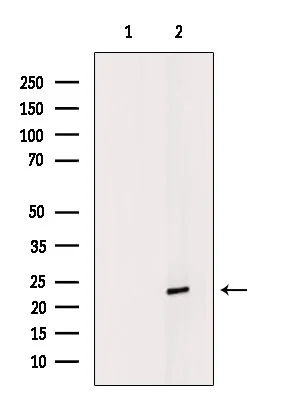
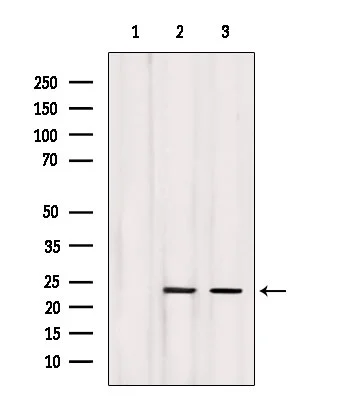
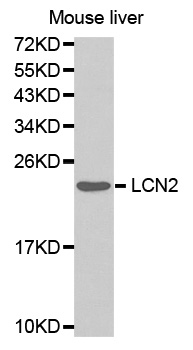
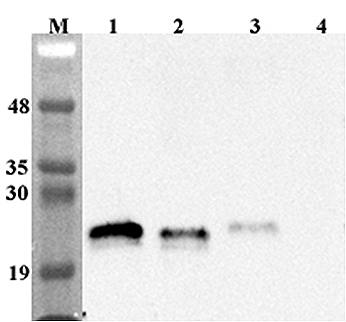


![Sandwich ELISA analysis of Human Lipocalin-2 Protein (GTX17616-pro) using GTX17618 Lipocalin-2 antibody [33] as coating antibody and GTX17617 Lipocalin-2 antibody [14] (Biotin) as detecting antibody.](https://www.genetex.com/upload/website/prouct_img/normal/GTX17617/GTX17617_ELISA_20181120_w_23060620_804.webp)
![Sandwich ELISA analysis of Human Lipocalin-2 Protein (GTX17616-pro) using GTX17618 Lipocalin-2 antibody [33] as coating antibody and GTX17617 Lipocalin-2 antibody [14] (Biotin) as detecting antibody.](https://www.genetex.com/upload/website/prouct_img/normal/GTX17618/GTX17618_ELISA_20181120_w_23060620_826.webp)